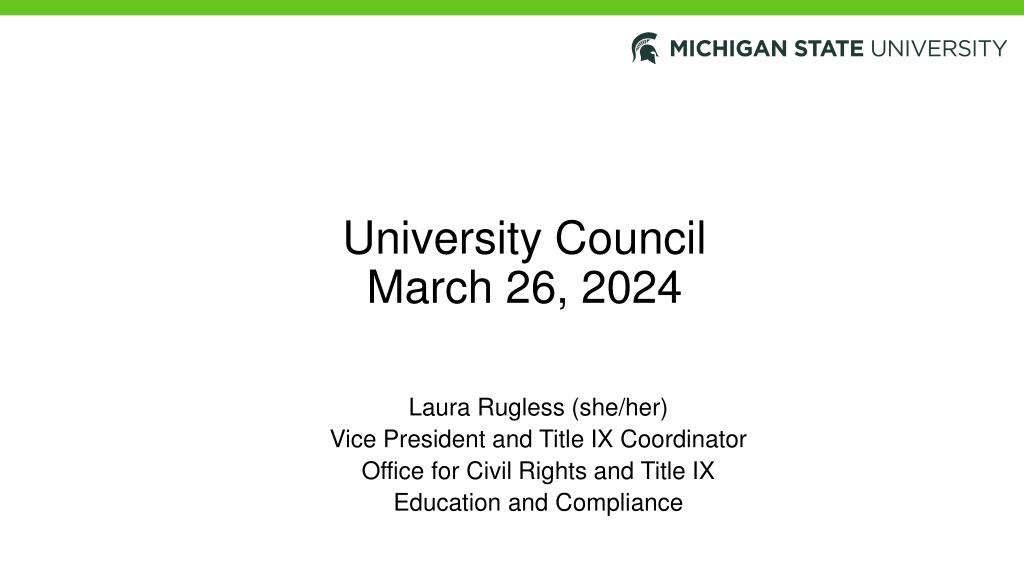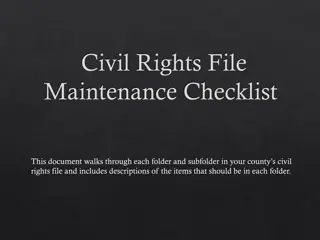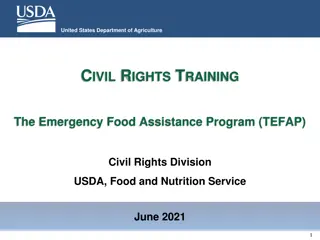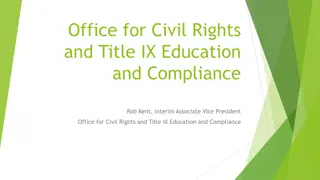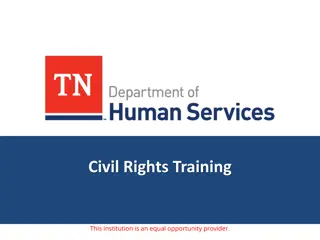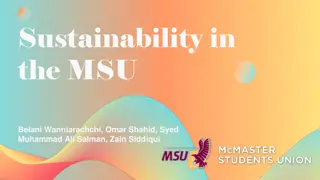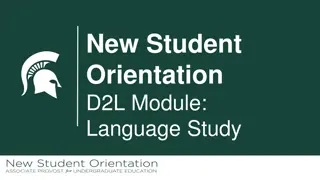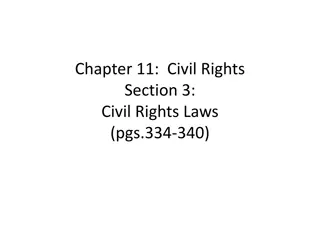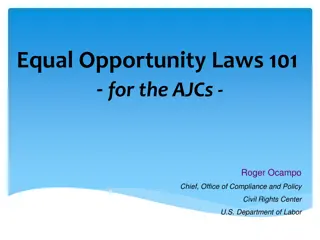Enhancing Civil Rights Compliance and Support at MSU: Key Initiatives and Strategic Priorities
Laura Rugless, Vice President and Title IX Coordinator at MSU, is leading efforts to strengthen civil rights compliance and support through strategic priorities like developing OCR resources and improving campus safety. Key initiatives include redeveloping the Support and Intake process, enhancing civil rights policies, and leveraging new technology for tracking and analytics.
Download Presentation

Please find below an Image/Link to download the presentation.
The content on the website is provided AS IS for your information and personal use only. It may not be sold, licensed, or shared on other websites without obtaining consent from the author. Download presentation by click this link. If you encounter any issues during the download, it is possible that the publisher has removed the file from their server.
E N D
Presentation Transcript
University Council March 26, 2024 Laura Rugless (she/her) Vice President and Title IX Coordinator Office for Civil Rights and Title IX Education and Compliance
OCR Strategic Priorities Develop the structure and resources of OCR to meet the evolving needs of MSU and the university community. Develop Improve Improve campus safety and culture through robust prevention, support and response. Enhance Enhance MSU s civil rights profile and measure the impact of our efforts relative to higher education nationally.
Key Initiatives Develop and Improve SUPPORT AND INTAKE REPORTING AND CASE MANAGEMENT SYSTEM POE TRAINING DIGITAL ACCESSIBILITY POLICIES
Redeveloped SIT approach provides 360 person-centered support and guidance sooner Support and Intake combined to provide a streamlined experience at the onset of receiving OCR services. A new step in the process, Options Meetings, is designed to inform parties about resources, supportive measures, party rights, and OIE processes before meeting with an investigator if they choose. The timely response in outreach, approximately 2.5 business days from the initial report, coupled with Option Meetings, will enhance community member s experience with the OCR support and intake process.
More robust civil rights policies help drive reporting, support and response New this year based on existing protocols Currently under revision Anticipated revision Mandatory Reporting for Relationship Violence, Sexual Misconduct and Stalking Policy Pregnancy, Childbirth and Other Pregnancy Related Conditions for Students and Employees Anti-Discrimination Policy Digital Content and Web Accessibility Policy Disability and Reasonable Accommodation Policy Relationship Violence and Sexual Misconduct and Title IX Policy (depends upon new Title IX regulations)
New technology will enhance capabilities for tracking and analytics New case management system has expanded reporting and monitoring ability to increase communication and shorten timelines Weekly metric inspections to inform operators of volume and develop solutions in real time Development of suite of analytics will be used to inform prevention efforts and increase transparency
Prevention, Outreach and Education (POE) offerings enhance safety and improve response Multi-tiered approach for undergraduate students results in learning beyond compliance Specialized trainings and programs for athletics, fraternity and sorority students and REHS Online and in-person programming for employees and graduate students creates consistent knowledge across campus Other learning opportunities such as the POE Annual Summit and requested trainings Climate and Response Unit work with units across the university in developing strategies to promote healing and culture change Request a training: POE.Training@msu.edu
Campuswide digital accessibility collaboration enhances inclusion and access Raises awareness of digital accessibility by maintaining a Digital Accessibility Liaison as a point of contact in each MSU unit Empowers faculty and staff through web-based tutorials, free access to training courses, and the Digital Accessibility website Improves campus culture via regular meetings, dashboards with accessibility metrics, and an annual self-review survey Provides guidance and support to units needing assistance
Federal/National Level Increase in U.S. Dept of Education Title VI shared ancestry complaints Help students Address hostile environments Ensure access Possibility of new Title IX regulations this spring or summer more to come AI policies that center equity and civil rights
Thank you! Questions? Visit: civilrights.msu.edu Contact Us: OCR.laurarugless@msu.edu OCR.eltarohooper@msu.edu OCR.tracyleahy@msu.edu POE.kellyschweda@msu.edu
